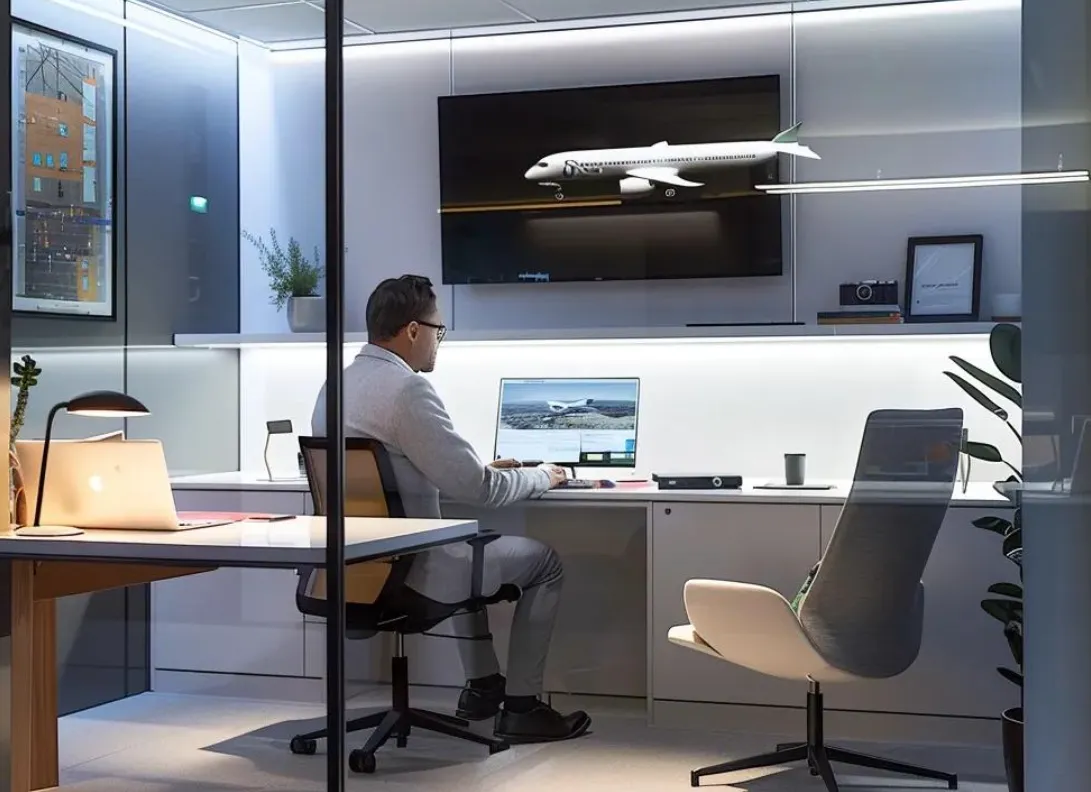Blog

Elevate Your Wellbeing: Discover Online Therapy for Pilots
Navigating mental health with online therapy for pilots
Understanding the importance of mental wellness for pilots
Mental health in aviation is more than a personal concern—it's a professional imperative. Pilots, flight attendants, and aviation students often face intense occupational stress marked by irregular hours, long absences, high-stakes environments, and minimal privacy. The cumulative effects can manifest as fatigue, depression, chronic stress, emotional exhaustion, substance abuse, or even suicidal ideation. Recognizing early signs of distress, including mood changes, irritability, trouble focusing, and fear of losing a medical certificate, is vital.
Stephen Rought, a licensed professional with extensive experience in aviation counseling, helps pilots manage stress, anxiety, and deeper emotional wounds—like childhood trauma, grief, or anger—within a safe space built on confidentiality and trust.
Recognizing the signs of stress in aviation professionals
Stress can creep in subtly. Mood swings, reduced confidence, sleep issues, and changes in behavior or performance are often early indicators. Many aviation professionals rely on coping strategies like overworking or alcohol to manage symptoms—ultimately compounding the problem. Awareness and early intervention protect both mental health and flight safety.
How mental health affects pilot performance
Unaddressed psychological challenges can undermine a pilot’s judgment, decision-making, and situational awareness. Conditions such as anxiety, depression, and addiction impair focus and slow response times. Health professionals, including those versed in aviation medicine and certified by the FAA or as aviation medical examiners, stress the value of mental resilience in preventing costly mistakes.
The link between mental health and aviation safety
Mental wellness and safety go hand in hand. Pilots who manage stress effectively and receive appropriate support are more focused, confident, and capable. In contrast, unrecognized emotional strain increases the risk of error. Stephen Rought emphasizes that addressing mental health isn't a weakness—it's an investment in personal safety, public trust, and long-term quality of life.
Benefits of using online therapy for aviation specialists
Teletherapy increases accessibility to mental health services while respecting the dynamic nature of aviation careers. Whether you’re a captain, student, or flight crew member, online therapy ensures you can access professional support wherever you are. Telehealth counseling with Stephen Rought offers flexibility, confidentiality, and FAA-aware care.
Accessing professional support from anywhere
Online therapy removes barriers like geography or stigma. Whether you're on layover or between rotations, access to a licensed therapist with aviation knowledge gives you a lifeline—anytime, anywhere.
Customizing therapy to fit flight schedules
Pilots and aviation staff can benefit from tailored sessions scheduled around flight logs, rest periods, or personal time zones. This flexibility supports long-term management of mental health challenges like anger management, grief, or substance dependency.
Engaging with therapists who understand aviation
Not all health care providers understand FAA regulations or the unique demands placed on aviation professionals. Stephen Rought bridges that gap, offering therapy that accounts for job-related fears, coping mechanisms, occupational stress, and the pressure to maintain a valid medical certificate.
Types of online therapy services available for pilots
Therapy is not one-size-fits-all. Stephen Rought offers a variety of services—from individual counseling to group sessions—each designed with aviation professionals in mind. His work addresses everything from marriage and family strain to mood disorders, grief, and trauma.
Individual therapy options for personalized support
Private, one-on-one sessions focus on managing fear, building confidence, and developing healthy coping strategies. Pilots can explore chronic stress, substance use, anger, or suicidal thoughts in a supportive and secure environment.
Group therapy for shared experience and support
Peer support is powerful. Group therapy creates a sense of connection and mutual understanding, particularly around shared experiences like aviation fatigue, loneliness, or fear of losing one's license due to mental health concerns.
CBT and other techniques tailored for pilots
Evidence-based methods like Cognitive Behavioral Therapy (CBT) help reshape harmful thought patterns, while mindfulness and stress management techniques address emotional regulation. These tools, when customized to the demands of flight crews, can improve mood, reduce fear, and enhance coping strategies.
Steps to choose the right online therapist for your needs
Finding a qualified, empathetic therapist is essential for pilots, especially when dealing with sensitive issues like addiction, anger, or depression. Stephen Rought encourages clients to choose providers familiar with aviation medicine and FAA-related health requirements.
Evaluating credentials of online mental health professionals
Ensure your therapist is a licensed professional with experience in aviation, occupational stress, or trauma. Health insurance and Medicare often cover these services, especially when the provider is in-network. Always verify licensing and credentials.
Assessing compatibility with your therapist
Trust and open communication form the foundation of therapy. Use early sessions to evaluate the therapist’s style, communication skills, and understanding of aviation-specific stressors. Feeling heard and safe is non-negotiable.
Determining focus areas relevant to aviation
Your therapist should understand the realities of FAA protocols, aviation medical exams, and the emotional toll of living under constant scrutiny. Whether you’re managing medication, navigating relationship issues, or dealing with grief or childhood trauma, your therapy should align with your lifestyle and risks.
Overcoming challenges of online therapy for pilots
Despite its advantages, online therapy requires preparation. Managing technical, emotional, and scheduling challenges is part of maximizing the benefits of care.
Managing time zone differences and scheduling
Use platforms with timezone tools and calendar flexibility to ensure continuity. For some, asynchronous messaging—paired with live video—is ideal. Keep your therapist updated on changes in your flight schedule.
Addressing privacy and confidentiality concerns
Concerns about FAA disclosures or career consequences often prevent pilots from seeking help. Stephen Rought uses secure, HIPAA-compliant platforms and honors strict confidentiality—creating a judgment-free, safe space for healing.
Ensuring technology readiness for effective therapy
Having a stable connection and quiet space supports consistent care. It’s recommended to test your setup in advance and keep a backup device or session option available in case of technical issues.
Integrating therapy into your daily routine as a pilot
Sustainable mental health comes from integrating therapy into your lifestyle—not treating it as an emergency fix. Building mental resilience, managing fear, and reducing occupational stress take consistency.
Establishing consistent therapy sessions
Treat therapy like flight prep: essential and non-negotiable. Consistent appointments, even if monthly, keep your emotional baseline strong. Therapists can also help manage medication plans if needed.
Combining therapy with personal wellness practices
Therapy works best alongside good sleep, exercise, nutrition, and mindfulness. Stephen Rought works with clients to create comprehensive wellness plans that strengthen both mind and behavior.
Setting realistic goals for mental health progress
Your goals might involve improving sleep, reducing substance use, processing grief, or rebuilding confidence. Setting achievable benchmarks helps maintain motivation. Therapy is a journey—celebrate small wins.

Stephen Rought, LCSW
Proudly Accepting
Aetna and Medicare Insurance


Disclaimer
Stephen Rought, LCSW does not guarantee any specific outcome. All content provided on the Stephen Rought, LCSW website is provided for educational or informational purposes only. Consult medical professionals you are working with about whether any opinions or recommendations provided through this website apply to you and your unique circumstances
Currently, all online therapy sessions are conducted using the HIPPA compliant Telehealth service doxy.me
SErvices
Individual Therapy
Parent Coaching
Financial Therapy
Couples Counseling
Family Therapy
